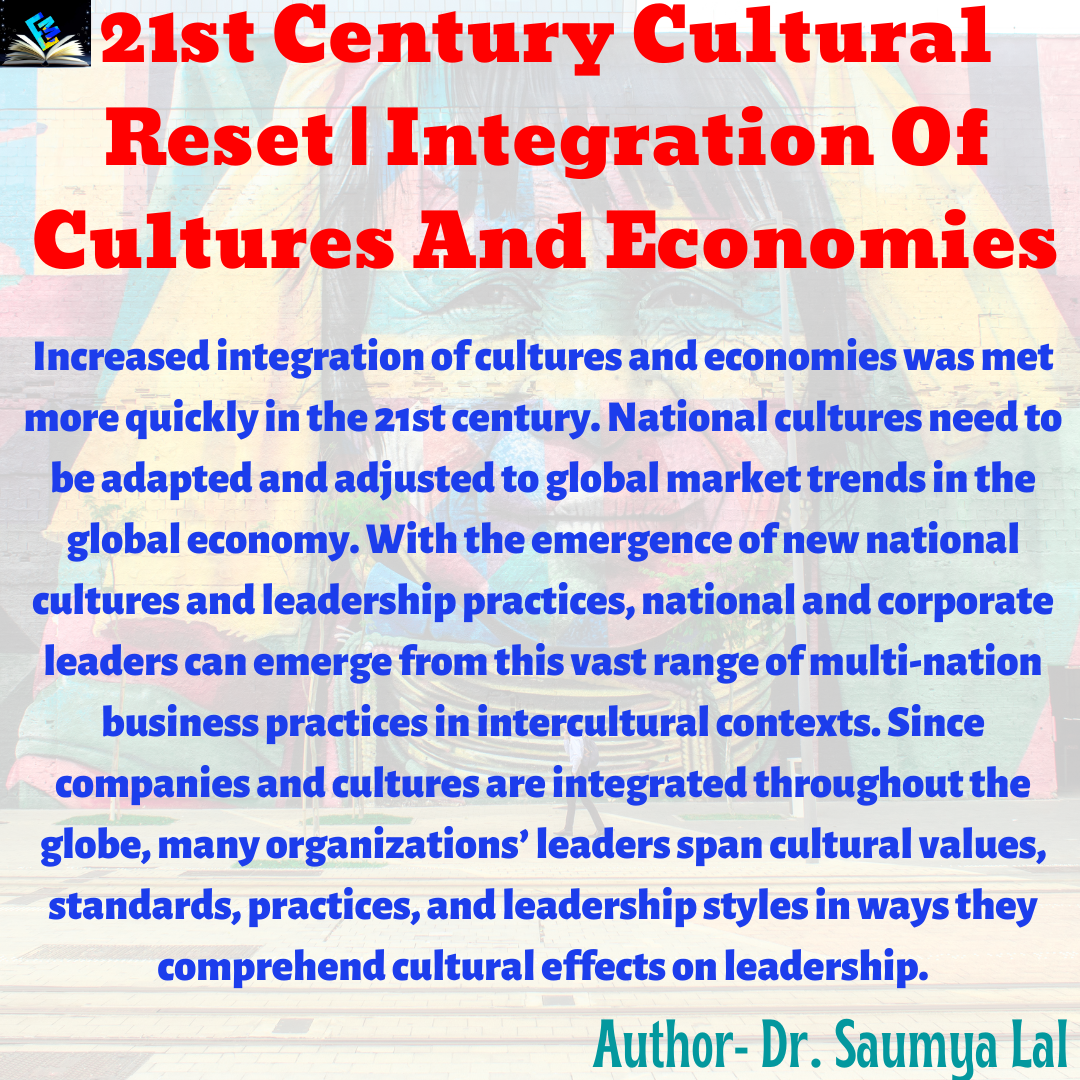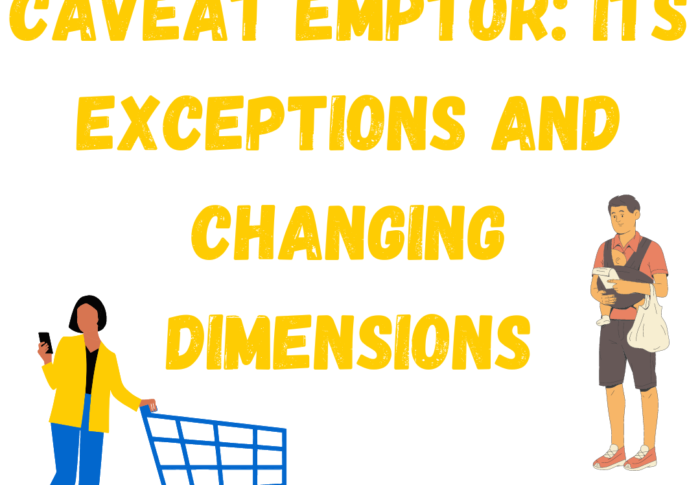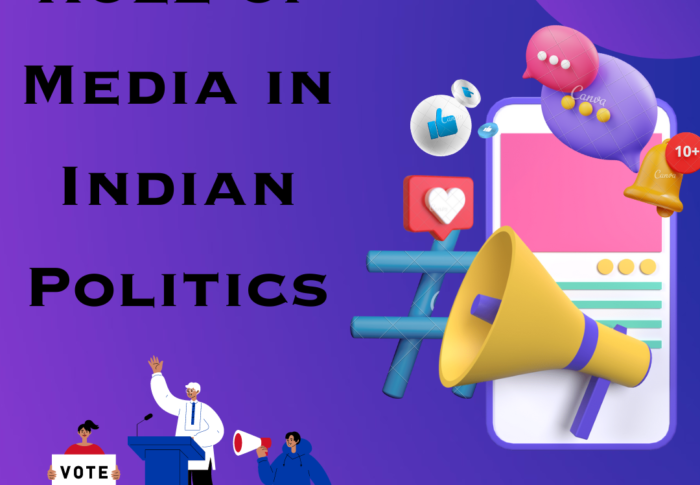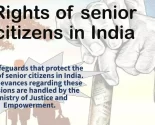
21st Century Cultural Reset | Integration Of Cultures And Economies
Good ethics is conveyed to humans through cultural values. Cultural enrichment was constantly made to Indians. Indians are recognized for their wonderful manners and culture.
Author: Dr. Saumya Lal
Leadership is affected in various ways by cultural variables. Leaders view themselves as working in particular within the extended family system for family and extended family members rather than for immediate satisfaction of themselves. In culturally included civilizations, organizational leaders see how a man or woman should or should not comply in the working environment with peers and subordinates, depending on their family name, duties, and social construction. Societal constructs are based on age, gender, educational level, and area.
Increased integration of cultures and economies was met more quickly in the 21st century. National cultures need to be adapted and adjusted to global market trends in the global economy. With the emergence of new national cultures and leadership practices, national and corporate leaders can emerge from this vast range of multi-nation business practices in intercultural contexts. Since companies and cultures are integrated throughout the globe, many organizations’ leaders span cultural values, standards, practices, and leadership styles in ways they comprehend cultural effects on leadership.
It should be noted that cultural heritage is a vital cultural pillar and that these two sectors face shared difficulties. In our culture, education is essential for their lives, job search, and improved social plans. It is the culture that encourages people towards extending their pleasant behavior and coexisting and living in harmony with others. We have inherited the spirit of scientific thought from our ancestors. The information that we have inherited essentially from our antecedents is the abstract knowledge or the core institution. This information has generated more contemporary civilization for us through the turning point or application of it in uses particular methods.
The progress of time and technology is replacing ancient traditions, customs, religiosity, and orthodox ideals with reasoning and scientific knowledge. The questioning element of our customs does not nevertheless constitute a very healthy move. There are still many old traditions that have been followed, only when we examine them closer. The relationship or interaction is lost or forgotten through time, leading to selective changes in the way we view religion and traditions as a whole and to adaptive modifications. Religion ought not to be a barrier but a component of cultural upliftment. They say, Father is the family’s head, and it’s nice to have supper for the entire family. That was a matter of the past. Now, our lives are governed by devices, individuals work flexibly, and cultural unity has become a question of social reconciliation. Joint families were a very important part of our culture earlier on. Our cultural values were interacted by older and younger generations and they perceived them and comprehended them. When this set-up was replaced by a nuclear family set-up incrementally, the transmission of cultural values took its place. Time for everyday work, the demand for independence, professional development, and the increasing relevance of social restructuring.
India has several challenges in society. Some have been addressed, others still require a platform. “Giving” has been part of our broader culture for some years. In addition, the ordinary person who gave charity to society in the form of need supplied money for the welfare of society and people for leaders, bodies, and their employees. Given in cultural textbooks is no longer a sophisticated phrase but rather a component of a greater contribution in today’s world. This ‘philanthropic’ makes NGOs famous and popular!! People don’t mean they’re not necessarily part of their culture. When an economic ground was formed in India, the backward classes and peer classes in society flowed the lowest, followed by the middle class and the high class. The cultural values have moved in the other direction and cultural importance has been considered by the upper class.
It is a different scenario now. We have a modern class that is supposed to sail high with modern waves but still has a touch of cultural origins. The ultra-modern classes are supposed to be removed from the cultural radar and live in a liberal society. People from the younger generation dismiss their cultural ties, far from seeing a method of generating money. The fivefold theory upon which this model is constructed is intriguing. The fundamental premise of labor is the splendor built up by their vision. The beauty of this splendor is appealing to many. The second premise is that distractions are excluded on the road to success and focus. The third principle illustrates the effectiveness and endurance of our activities. The fourth main topic is its social standing and its work well-being. Because of our well-being, the fifth principle inspires others. Religion is not the same as culture. To practice and propagate particular beliefs, religion sets out certain guidelines. On the other side, culture teaches a compassionate way to live. Without the perimeter of culture, no religious textbook will get far. Religion is the inner thing, and culture is like the prolonged perimeter of touch that allows religion to follow the correct route. For a long time, India has been and is rich in its value system, a site of cultural outpouring. But slowly, problems like corruption and other societal ills are flourishing as a result of the mentalities and the effort to pull people off their cultural roots.
Today in towns we have tiny families that live harmoniously. Today, it’s a requirement. We don’t see anywhere anymore huge, common family systems. Now, it’s a rare thing. This notion is not to forget people’s principles, customs, or traditions. You’re still following them. At home, festivals are still held. It must have been only through changing times and traditions that it is commemorated
Good ethics is conveyed to humans through cultural values. Cultural enrichment was constantly made to Indians. Indians are recognized for their wonderful manners and culture. Regardless of where we work or study, we should leave our bad features behind. It must not be forgotten that we have our cultural configurations and values. The human being in the 21st century is more susceptible to spiritual satisfaction in his society. He utilizes his culture to identify the appropriate pathways and to draw power from them. A person’s prosperity ladder should not be blocked by culture, it should change him of evil into good.
Mail us at info@edumound.com






